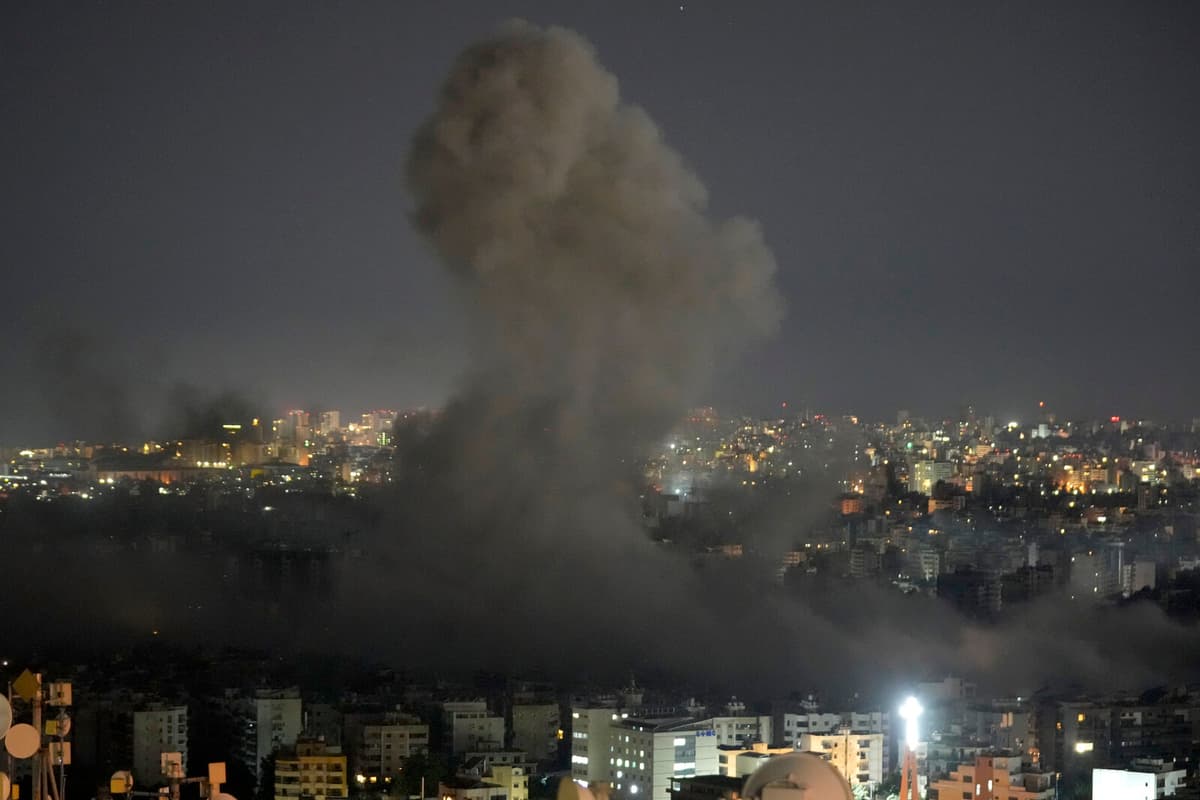"Hostile aircraft" has carried out at least eight air strikes against southern Beirut on Friday evening, according to Lebanon's national news agency. The attacks are said to have targeted areas including Haret Hreik, Burj al-Barajneh, and Laylaki.
A spokesperson for the Israeli military wrote on X before the attacks that it would take action against Hezbollah targets in the designated areas.
"You are close to facilities and interests linked to Hezbollah, which the Israeli defense forces will take action against in the near future", wrote Adraee.
During the night against Friday, Israel bombed a second border crossing between Lebanon and Syria. Only one official passage between the countries is still in use, according to Lebanon's Transport Minister Ali Hamieh.
Israel confirms the attack.
"During the night, the air force struck Hezbollah's infrastructure facilities at the Jousieh border crossing in the northern Bekaa region", the military said in a statement.
UN: Endangering escape route
According to Israel, Hezbollah is using the civilian crossing, "which is under the Syrian regime's control and operated by Syrian military security forces", to smuggle in weapons.
The UN says that Israel's air strikes against the border crossing are endangering the main escape route for people trying to flee the war.
Earlier in October, Israel attacked near the Masnaa crossing, the most important passage between Lebanon and Syria. The attack left a large crater on the road and forced the passage to close.
Journalists killed
Two people have been killed in one of Hezbollah's rocket attacks against the town of Majd al-Krum in northern Israel, reports Times of Israel. The town is mostly inhabited by Israeli Arabs.
On Friday, three journalists were killed while staying overnight in a guesthouse in southeastern Lebanon. It is the latest Israeli attack on journalists reporting on the war in Gaza and Lebanon.
On Tuesday, soldiers from the Israeli military fired at an observation post near the border village of Dhayra, announced Unifil, the UN peacekeeping force in Lebanon, on Friday. The UN soldiers withdrew to "avoid being shot".
US Secretary of State Antony Blinken has said in a conversation with Lebanese Prime Minister Najib Mikati that the UN peacekeeping forces in the country must be protected.
Blinken expressed during the meeting in London "his support for the UN force in Lebanon and stressed that the security of its personnel is of utmost importance", according to the US State Department in a statement.
Around 500,000 people, mainly Syrians, have fled to Syria since Israel launched an intensive air campaign against mainly Hezbollah positions in Lebanon at the end of September.






